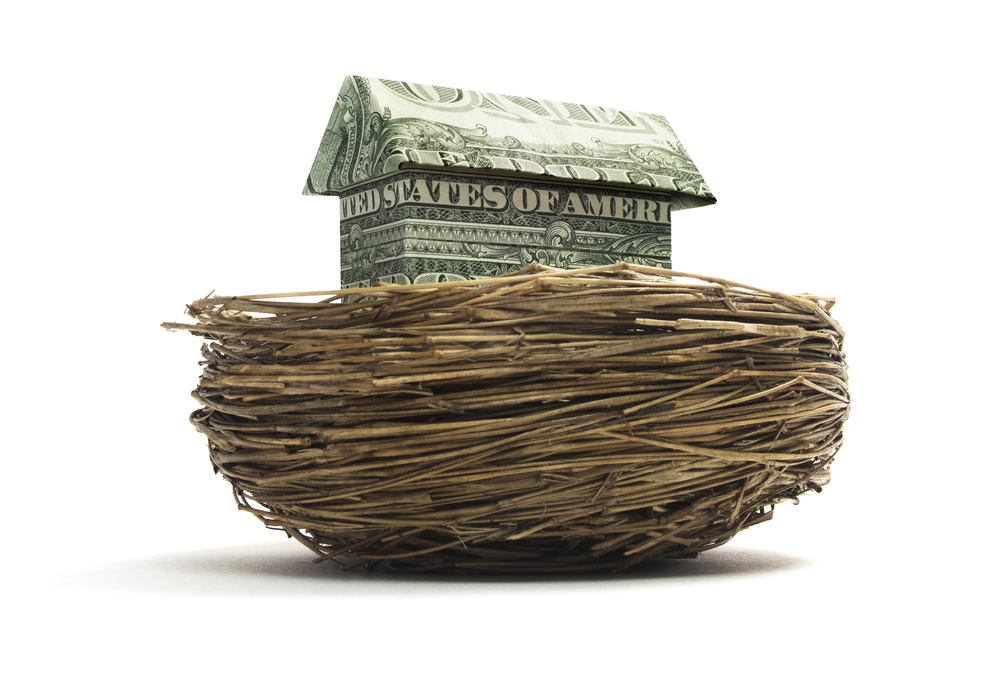You’re about to tap into your home’s equity, but beware – borrowing against your home equity comes with risks and responsibilities. You risk losing your home through foreclosure, accumulating high-interest debt, and decreasing your home’s value. You’ll need to understand the loan terms, make timely payments, and maintain your home’s value. You’ll also need to plan for unexpected financial challenges and communicate with your lender if difficulties arise. Don’t take this lightly – the consequences can be severe. Take a closer look at the fine print and the alternatives before making a move that can impact your financial future.
Key Takeaways
Borrowing against home equity poses risks of foreclosure, high-interest debt, and reduced home value, affecting credit scores and market value.
Hidden fees, origination fees, appraisal fees, and closing costs can add to the debt burden, making repayment even more challenging.
Borrowers must consider the long-term financial implications, including monthly strain, impact on retirement savings, and vulnerability to economic downturns.
It is essential to understand loan terms, make timely payments, and monitor accounts to avoid penalties, and consider alternatives like personal loans or crowdfunding.
Thorough research, informed decision-making, and seeking professional advice can help mitigate risks and protect home equity and financial stability.
Hidden Fees and Charges
When you’re borrowing against your home equity, be prepared to uncover hidden fees and charges that can quickly add up, draining your wallet and leaving you with a financial headache. These unexpected costs can come in many forms, such as origination fees, appraisal fees, and closing costs. You might also encounter annual fees, late payment fees, and even prepayment penalties. It’s crucial to carefully review your loan agreement to understand the total cost of borrowing.
Don’t assume that the advertised interest rate is the only cost you’ll incur. Lenders often bury these fees in the fine print, hoping you won’t notice. But you must be vigilant and factor these costs into your decision-making process.
Risk of Foreclosure
You’re putting your home at risk of being seized by the lender if you’re unable to repay the loan, a harsh reality that can leave you and your family without a roof over your heads. This isn’t just a theoretical risk – it’s a very real possibility that can have devastating consequences.
If you’re unable to make your loan payments, the lender can foreclose on your home, leaving you with nowhere to turn. You’ve worked hard to create a sense of security and belonging in your home, and the thought of losing it’s unbearable.
Don’t underestimate the risks of foreclosure. It’s not just a financial setback – it’s an emotional one too. Imagine having to uproot your family, leave behind memories and start anew. It’s a prospect that’s both daunting and unsettling.
Before you take out a home equity loan, make sure you understand the risks and take steps to mitigate them. Don’t let the allure of quick cash cloud your judgment – your home is worth more than that.
Accumulating High-Interest Debt
Taking out a home equity loan can land you with a debt burden that’s as crushing as it’s costly. You’re not just borrowing money; you’re also taking on interest rates that can quickly add up. Before you know it, you’re trapped in a cycle of debt that’s hard to escape. And if you’re not careful, you’ll be paying more in interest than the actual loan amount.
You might be tempted to use that extra cash for renovations, debt consolidation, or even a vacation. But remember, you’re putting your home on the line. And with high-interest rates, you’ll be paying for that luxury for years to come. Don’t let the promise of quick cash cloud your judgment. Take a step back, crunch the numbers, and think about the long-term consequences.
You deserve better than being stuck in a debt spiral. You deserve financial freedom, and that starts with being responsible with your home equity. So, take a deep breath, do your research, and make informed decisions. Your financial future is worth it.
Reduced Home Value
Borrowing against your home equity can also decrease your home’s value, leaving you with a depreciated asset that’s no longer the financial safety net you thought it was. This can happen in two ways. Firstly, the added debt can negatively impact your credit score, making it harder for you to secure better loan terms in the future. Secondly, the increased debt burden can lead to a decrease in your home’s market value, making it harder to sell or refinance.
You might think you’re getting a good deal, but in reality, you’re putting your home’s value at risk. If the housing market takes a downturn, you could be left with a mortgage that’s higher than your home’s value. This can lead to financial distress, making it difficult to meet your loan obligations.
It’s crucial you understand the potential risks and take a step back to reassess your financial situation before making a decision. Remember, your home is likely your most valuable asset – don’t put it in jeopardy for short-term gains.
Potential Tax Implications
As you tap into your home’s equity, beware of the potential tax implications that can further erode your financial stability. You may think you’re getting a good deal, but the Internal Revenue Service (IRS) might have other plans.
For instance, the interest on your home equity loan or line of credit mightn’t be tax-deductible, depending on how you use the borrowed funds. If you’re using the money for home improvements, you might be in the clear, but if you’re paying off credit card debt or financing a vacation, you won’t be able to deduct the interest.
And let’s not forget about the potential capital gains tax you’ll face when you sell your home. You could be on the hook for a hefty tax bill if you’re not careful.
Don’t assume you’ll come out ahead just because you’re borrowing against your home’s value. Take the time to understand the tax implications and plan accordingly. Your financial future depends on it.
Impact on Credit Score
Your credit score is on the line when you tap into your home’s equity, and even a single misstep can send your rating plummeting. One late payment or missed payment can drop your score by 60 to 100 points, making it harder to get loans or credit in the future.
You’ll be seen as a higher risk to lenders, and your interest rates will skyrocket. If you’re not careful, you might find yourself stuck in a cycle of debt, with no clear way out.
Borrowing More Than Needed
Temptation lurks in the shadows when you’re offered a large sum of cash, and taking more than you need can be a recipe for financial disaster. You might think, ‘Why not take the extra cash? It’s mine, after all.’ But borrowing more than you need is a slippery slope. You’ll be paying interest on that extra amount, which can add up quickly. And let’s be real, do you really need that new TV or vacation, or can you wait?
You should only borrow what you need to achieve your financial goals. Anything extra is just a burden on your wallet. Remember, this is your home’s equity we’re talking about – your most valuable asset. Don’t put it at risk for frivolous spending. Be honest with yourself: will that extra cash really improve your life, or will it just lead to more debt and stress?
Take a step back, prioritize your needs over your wants, and make a smart decision for your financial future.
Long-term Financial Consequences
You’ll be living with the financial fallout of borrowing against your home equity for years to come, so it’s crucial you consider the long-term consequences of your decision. The interest on your loan will add up over time, and you’ll be paying more than you borrowed. This can lead to a debt spiral, where you’re struggling to make payments and your credit score takes a hit. If you’re not careful, you could be stuck in a cycle of debt that’s hard to escape.
Moreover, borrowing against your home equity can limit your financial flexibility in the future. You may need to tap into your home’s equity again for unexpected expenses or emergencies, but if you’ve already borrowed heavily, you may not have enough equity left. This can leave you feeling trapped and anxious about your financial situation.
It’s essential to think about the long-term implications of your decision and consider whether the short-term benefits are worth the potential long-term costs. By understanding the potential consequences, you can make a more informed decision that works best for your financial well-being.
Alternative Funding Options
Before taking on debt against your home equity, consider exploring alternative funding options that can help you achieve your financial goals without putting your home at risk.
You may not need to tap into your home’s equity to access the funds you need. Have you looked into other sources of funding that don’t involve using your home as collateral? You might be surprised at the options available to you.
For instance, you could consider taking out a personal loan or credit card with a lower interest rate. You could also explore crowdfunding or peer-to-peer lending platforms.
If you’re looking to fund a specific project or expense, you might be able to find a more targeted solution, such as a home improvement loan or a small business loan. By exploring these alternative funding options, you can avoid putting your home at risk and still achieve your financial goals.
It’s worth taking the time to research and compare your options before making a decision. Your home – and your financial well-being – will thank you.
Frequently Asked Questions
Can I Use My Home Equity Loan to Pay for College Tuition?
“You can use your home equity loan to pay for college tuition, but consider the long-term implications – you’re putting your home on the line for your child’s education, so weigh the pros and cons carefully.”
How Does a Home Equity Loan Affect My Ability to Sell My Home?
“When you take out a home equity loan, you’re essentially using your home as collateral, which can impact your ability to sell your home, since the lender will have a lien on your property, making it harder to transfer ownership.”
Can I Deduct Home Equity Loan Interest on My Tax Return?
You can deduct home equity loan interest on your tax return, but only if you use the loan for home improvements, not for personal expenses, and itemize your deductions – it’s a great tax benefit!
Is It Possible to Borrow Against My Vacation Home’s Equity?
You can tap into your vacation home’s equity, but be aware that lenders often view these properties as riskier, so you’ll likely face stricter qualification requirements and higher interest rates than with a primary residence.
Can I Use a Home Equity Loan to Pay off Credit Card Debt?
“You can use a home equity loan to pay off credit card debt, consolidating high-interest payments into a lower-rate loan, but be cautious of converting unsecured debt into secured debt tied to your home.”
Conclusion
Don’t let the temptation of easy cash cloud your judgment. Borrowing against your home equity comes with serious risks and responsibilities. You could lose your home, accumulate high-interest debt, and face long-term financial consequences.
Before making a decision, carefully weigh the risks and consider alternative funding options. Your financial future is at stake – proceed with caution.



